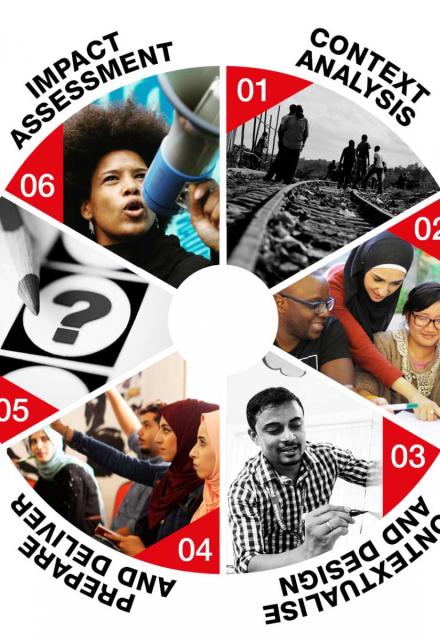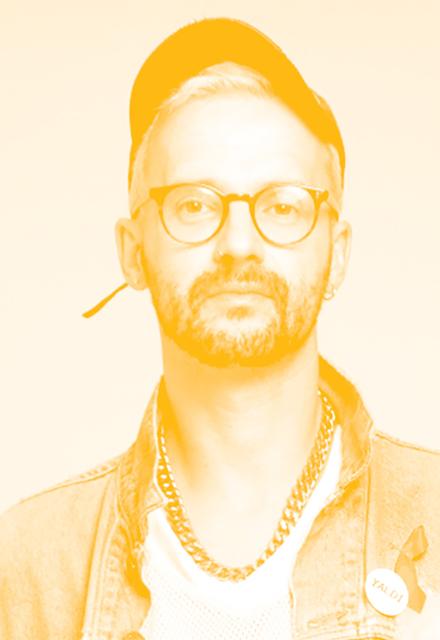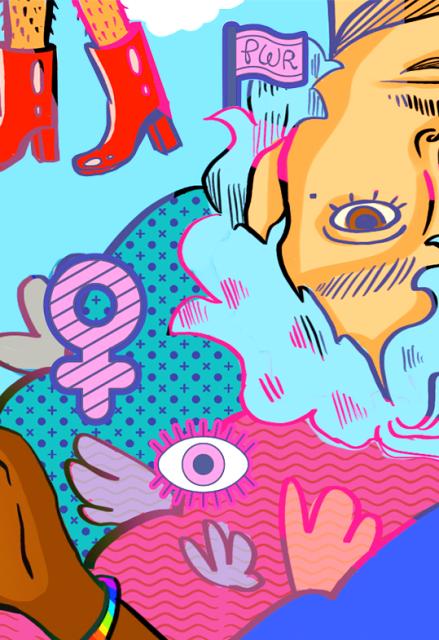“In the Soviet Union, it was dangerous to be different. There was this paradigm that everyone should be the same. Not equal, but the same. Identical. And those who were different, they were running a risk”
Picture yourself in a trench at the frontline in Ukraine. The ground is cold and wet. Underneath you the earth trembles as Russian explosions hit nearby. Death has become an everyday occurrence. Another friend lost in battle. Every night air strikes interrupt your sleep. You spend most of your waking hours waiting, together. A young man next to you looks at a picture of his boyfriend. A blonde woman and a Roma man share a chocolate bar. Not only do your differences not matter – your differences are what you are fighting for.
“In the Soviet Union, it was dangerous to be different. There was this paradigm that everyone should be the same. Not equal, but the same. Identical. And those who were different, they were running a risk” explains Yuliia, a teacher who works at Insight, an organisation fighting for LGBT+ equality in Ukraine. She sits in a circle of young women on coloured bean bags at the organisation Insight’s office in Kyiv. A heart shaped, rainbow striped balloon hangs on the wall. Since the beginning of the war Insight and its volunteers – like many people, organisations and businesses – have spent much of their time on humanitarian work. The war brought people together in a common struggle for survival, a struggle against territorial and cultural colonisation by Russia. Amidst all the horror, there is an opportunity to overcome differences and create a better, more tolerant society.
Before the war – which really started in 2014 when Russia invaded Crimea – most Ukrainians probably did not think too much about the differences between the two neighbouring countries. Many Ukrainians were brought up speaking Russian and family relations often transcended national borders – and still do. The blatant disregard for Ukraine’s sovereignty by Putin and his allies feels like the ultimate betrayal. Ukraine had apparently strayed too far from the “Empire” and the Kremlin’s sphere of influence. The desire for freedom – for the country and for individuals – clashes with the Soviet legacy of sameness, according to the young women. The war between Ukraine and Russia is as much a war of ideas as it is about territory. And for young LGBT+ people a life under Russian occupation would equal a life under oppression, where their differentness is seen as a threat to the silent sameness that erased their parents’ or grandparents’ individuality.
“Many LGBT+ people joined the army voluntarily when the full-scale invasion of Ukraine happened. It was a way to show that we have the same desire to defend our country, our freedom and our identity,” says Yuliia.
The women tell stories of friends in the military: Men who are openly gay and are accepted; a lesbian woman who asked her military unit to sign her rainbow flag.
“She felt like she needed to avoid any suspicions and just address it from the start. And although military units are definitely quite homophobic structures her team accepted her. They had no problems with it”.
“When you have the feeling that tomorrow might not happen, then you have to ask yourself: What do I want to do today? You either do it right now or you might not live do it at all”.
But despite the progress on acceptance for LGBT+ people, Roma and other minorities the women caution that this momentum also calls for action. Ukraine’s legislation on homosexuality and LGBT+ rights are in dire need of changes to address discrimination and same-sex relationships – something that has become a major issue when same-sex partners of wounded or fallen soldiers are not allowed to see or bury their loved ones. Many politicians delay any action pointing to the ongoing war. But war is no excuse not to act according to Yuliia and her friends. So the young women, men and queer people at Insight keep doing their part to provide humanitarian help – and to push for societal change; for a country that embraces difference and has space for people like themselves.
For Natalya, a young art therapist and piano player, the war also pushed her to be brave in her personal life by coming out to her mother:
“When you have the feeling that tomorrow might not happen, then you have to ask yourself: What do I want to do today? You either do it right now or you might not live do it at all”





